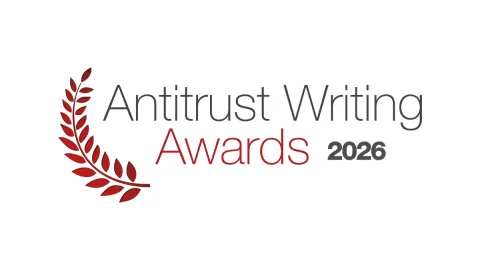Change in the air in Sweden and beyond: does your competition law compliance need a Spring clean?
March 18, 2021
Major amendments to competition legislation are expected to add more bite to the bark of Sweden’s antitrust watchdog.
On 1 March 2021, the Swedish Competition Authority (SCA) gained a number of new powers and introduced some related changes to its routines. Specific to Sweden but with broader resonance in real terms, this is a good moment to take stock of your organisation’s existing competition law compliance framework: is a refresh needed to remain fit for purpose?
The main thrust of the changes is to broaden and deepen the SCA’s enforcement and sanctioning toolbox in its work against anti-competitive agreements and abuse of a dominant position in order to improve alignment throughout Europe. The merger control rules are unaffected, with transactions impacted only insofar as an assessment of risk during due diligence, integration or post-acquisition audits must evolve to keep pace with these developments.
What has changed and how to react?
Based on a number of central themes, we set out below some of the main changes to Sweden’s competition legislation and offer our reflections on what to think about in practice:
| 1 | New powers to conclude an investigation |
| Change | Action |
| The SCA no longer needs to go to court to impose a fine on a company for a competition law infringement and instead is now able to do so directly (with rights of appeal to the courts). | There are significant timing and process implications resulting from this change, even if these are more relevant to actual investigations than a compliance context. |
| The SCA is now able to impose (proportionate) structural and behavioural remedies to bring an infringement effectively to an end, such as divestments or firewalls. | Consider adjusting the list of potential investigation consequences (often found in the primary competition law compliance policy) to cover this outcome. Training materials may also need to be updated. |
| 2 | New powers to respond to a failure to cooperate during investigations |
| Change | Action |
| The SCA has gained the power to levy a new form of fine for failure to cooperate during an investigation (Sw: utredningsskadeavgift or ‘investigation fine’). For example, the fine can be imposed for: | Review compliance documents, internal processes and training materials to ensure that employees understand the new consequences of failure to cooperate with the SCA. |
| 3 | Consequences for trade associations and members |
| Change | Action |
| Where a trade association is fined for an infringement relating to the activities of its members, the maximum fine can now be calculated by reference to the members themselves, i.e. 10% of the combined worldwide turnover of the members operating on the market affected by the infringement. | We recommend: |
| Where a trade association is unable to pay a fine imposed by the SCA, relevant members may be required to contribute (up to the standard 10% turnover cap). |
| 4 | Consequences for dawn raids management |
| Change | Action |
| Subject to court approval and in addition to existing powers, the SCA is now also able to carry out a dawn raid relating to: | Check to see if there is a section in your dawn raids guidelines detailing possible ‘reasons for raid’ and update as required. |
| It is now no longer necessary for the SCA to secure the consent of a raided company to continue an inspection off-site, for example, back at the SCA’s own premises, irrespective of the form of the data (physical, digital, original) or storage medium. | Dawn raids guidelines should be updated to avoid employees inadvertently obstructing an SCA inspection, e.g. by attempting to refuse consent that is no longer required. |
| The SCA now also has extended powers to: | Some of this is clarification rather than revolution but overly Sweden-centric dawn raids guidelines may have become misleading and require some edits to track the greater freedom now afforded to the SCA. |
| The right against self-incrimination is now codified and clarified, which means a party cannot be required by the SCA, as part of a duty to provide information, to admit to an infringement. | This follows European Commission practice and case-law and is a typical benchmark in most dawn raids guidelines. |
| The SCA can now impose ‘investigation fines’ (see Theme 2 above) for: | These changes put the SCA’s powers more on a par with those of the European Commission. |
| 5 | Consequences for leniency |
| Change | Action |
| Changes have been made to the Swedish system to improve alignment with the EC leniency programme. | It would be unusual for a compliance policy to contain granular detail on the various forms of leniency available to a company – essentially, a reduction in fines in return for cooperation – but this topic may be touched upon in related contexts, such as dilemma training, or document management guidelines, in which updates may now be necessary. |
| New protections have been introduced in relation to how leniency and settlement submissions will be treated by the SCA and restrictions on their use in related proceedings, in Sweden and the rest of the EU. | Awareness of these new rules is less relevant to compliance but important for strategy as it concerns leniency and private damages actions. |
What has triggered these changes?
Most of these amendments are necessary to implement the so-called ECN+ Directive, which is aimed at increasing harmonisation of enforcement between competition authorities throughout Europe. Depending on the existing baseline in other EU Member States, some of these changes will recently also have been introduced in other parts of Europe too (for example, see this blog post). Keep this in mind when reviewing your compliance readiness – i.e. lift your gaze from Sweden and the Nordics to broader European dust down.
While in spring-cleaning mode, it makes sense also to reflect on whether your compliance framework is robust enough to manage the extra challenges posed by remote working practices, triggered by the Covid-19 pandemic but to some extent here to stay. Reduced staff interaction and the resulting impact on transparency are factors in our new reality and systems need to develop to reflect that (see more here for some interesting in-house perspectives on this angle).
Many organisations already strive to have uniform compliance policies applicable across their geographic footprints. The more high-level and less Sweden- or even EU-specific your organisation’s compliance policy documents are, the fewer changes are likely to be necessary as a result of the changes detailed in this bulletin. That said, there are a number of important shifts on the near horizon about which it is important to be aware, not least in terms of compliance training for employees.
You may also like







